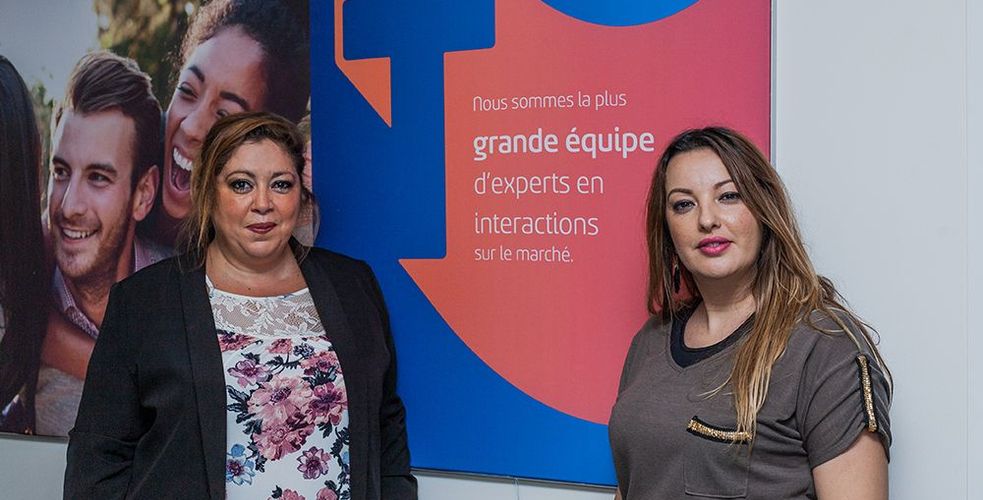Linda Hemlat, Director of Strategic Accounts

Master of Law and Business School (European Higher Diploma in Communication and Management)
I joined the Teleperformance group in 2007 as a client adviser on legal information activities, and I quickly moved within the company towards management positions. I finally left the operations in 2013 to join the Account Management.
En-Contact: What is the scope of crisis management activities and what are the types of crisis or management of particular events TP is it led to manage?
Linda Hemlat: The scope of the typologies of crisis that we are led to manage is quite broad: social crisis, natural disaster, bank failure, attacks, recall of products… Finally, our organization remains the same whatever the nature of the crisis, what differs is the degree of anticipation.
Ex. Following a major change in the standard of making televisions that rendered millions of French peoples televisions obsolete, one of our customers asked us to manage the crisis device. We worked on this project for one year…. We went from a team of 25 to more than 700 advisors in a few weeks and treated the equivalent of 3 years of calls in 4 weeks! During the onset of a sudden crisis, such as an attack, the mechanisms put in place allow us today to mobilize resources and to be able to inform the first callers one hour after the activation request.
How to summarize the know-how and the technical means or processes that are necessary for this type of operation?
The efficiency of these devices is based on anticipation and a robust organization. Regarding human resources, we need clear governance: each actor of the device is identified and knows precisely what actions to take. Teleperformance has also put in place specific support systems for our employees with crisis management training, a psychological helpline, etc. On the technical side, an infrastructure that is strong enough to handle significant call charges and policies that allow us to set up hundreds of positions in a very short time. Finally, if institutions and companies make calls to external partners, it is also to benefit from their expertise. We have a real duty to recommend both the human and technical resources (sizing, tools…) and the communication strategy (which channels, media, incoming or outgoing flows…)

Is there a positive stress, an excitement to handle this type of operation? For you and the agents?
Undeniably! Although the events that lead us to manage the crisis are often tragic, they force each of us to give the best of ourselves, whatever the time or day … no hesitation, no procrastination, our decision making and actions must be immediate, it keeps us in a state of permanent excitement.
How is this different from customer service management in other areas?
The value of time … The anticipation work is essential to respond to the specificities of a crisis activity: to go from 2 to 100 advisers in a few hours, to develop a script adapted to the crisis, to update the elements of language several times in the day. And then, the crisis has no schedule, it can happen on a Sunday, a holiday … to meet with colleagues, with the members of the management committee, in the middle of the night in our premises, it does not happen on the management of a traditional activity. In these moments, there is no concept of function or department, we are a team, a family united around a moment of crisis that our country lives.
By definition, the management of a crisis is sudden, how do brands, companies know you and contact you? It is necessary to establish an estimate very quickly but is it sometimes established post the beginning of the operations?
The impact in terms of image can be highly detrimental for the company concerned by the crisis. On the other hand, a well-managed crisis has a positive impact on the image of the company; it is therefore important to partner with a reliable provider. TP has technological and human structures capable of providing a solution, whatever the nature of the crisis or emergency.
Beyond that, Teleperformance today has recognized expertise in the market. Our partners are promoters and let it know.
Regarding the contractual aspects, Teleperformance has forged strong partnerships and a real relationship of trust has been established with our customers. Despite this and despite the urgency of a situation, the establishment of a crisis mechanism can not be at the expense of certain processes. All activities that we manage are covered by contract, quotes are sent before the start of operations.
Is the quality control of this type of operation based on the usual items?
The requirement in terms of quality delivered is the same, it would be a mistake to consider that because of the urgency of a situation one can be less overlooking. Our jobs and work tools have changed a lot in recent years, and this does not only apply to crisis management. The emotional component is an indisputable vector of satisfaction / comfort. This is why we have integrated into our quality measurement tools indicators totally detached from the usual “business” requirements, but rather focused on “human interactions” (emotional intelligence, resilience …). We work daily to bring technology to our devices. Not to dehumanize the relationship, and quite the contrary. Technology helps us to detach the advisor from repetitive or non-added-value tasks (reducing the number of clicks, screens, etc.). Finally, technology offers precious time to our advisors who can thus concentrate on the essential: a human-to-human exchange, a quality customer relationship. To summarize, I will simply quote one of our baselines: “every interaction counts”!
By Manuel Jacquinet




